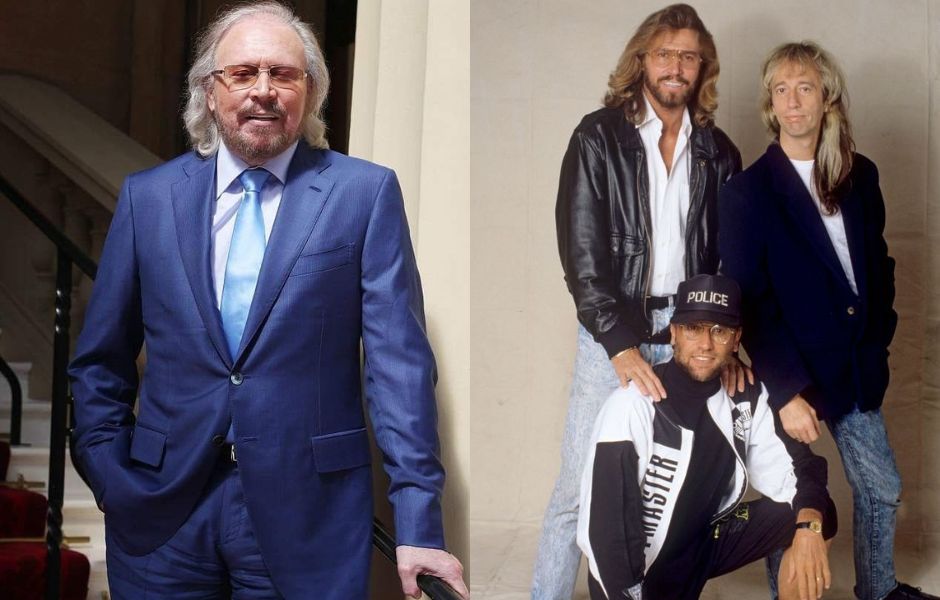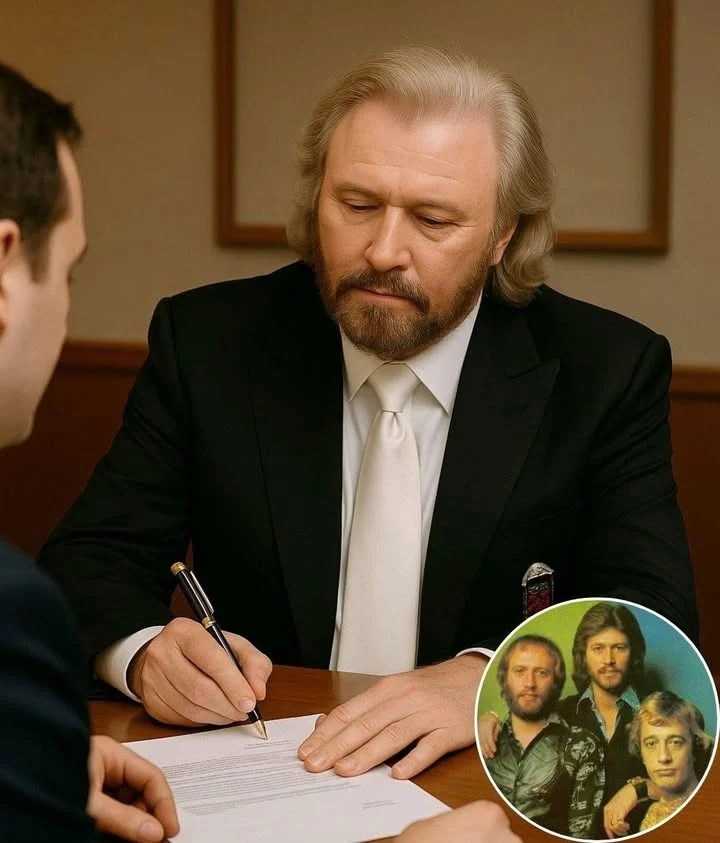
At 80 years old, Barry Gibb, the last surviving member of the Bee Gees, has once again shown us that his influence goes far beyond the timeless harmonies that defined an era. In a quiet, deeply personal moment away from the blinding flash of the spotlight, he visited an organ donation center in Florida to sign documents ensuring that after his passing, his body could help save lives. It’s a gesture wrapped not only in generosity but in the profound humility of a man who has spent a lifetime singing about love, loss, and connection.
For those who have followed Barry’s journey—from the dizzying heights of disco superstardom to a more reflective, private life—this act feels like a natural next phrase in the song that defines him. It was a decision born from compassion and purpose, a deeply spiritual choice reflecting the values he has quietly embodied throughout his life.
“He’s always believed that love should have action behind it,” shared a close family insider. “He told friends that if his music could heal hearts, maybe his body could help heal lives.” That simple yet powerful statement crystallizes what this gesture is really about: the idea that legacy isn’t measured in trophies or record sales, but by the lives we touch, the kindness we extend, and the bridges of empathy we build.
At the Florida center, witnesses described the scene as humble and moving. Barry, dressed simply, carrying his characteristic calm warmth, thanked the staff for their work, saying he wanted to “give back in the most human way possible.” There were no cameras, no public statements—just a man quietly choosing to write the next verse of his life’s song in silence.
This decision also carries the weight of personal history: the recent losses of close friends and, most poignantly, the memory of his brothers Robin and Maurice—co-captains of the Bee Gees, whose voices once intertwined to create those unforgettable harmonies now deeply missed. Their deaths left a lasting mark on Barry, who has said that his brothers taught him “life is fragile and precious.”
“He wanted to do something that keeps giving long after he’s gone—something they would have been proud of,” a longtime friend revealed, painting a picture of a man whose music was never just about the bright lights of fame but about something more enduring: a message of love and empathy that persists beyond the final note.
It’s impossible not to recall the bittersweet emotion embedded in songs like Too Much Heaven and How Deep Is Your Love, which were more than pop hits—they were gentle sermons on the value of connection and the power of giving. Barry’s latest act adds a new, literal dimension to those themes: he is not merely singing about healing; through his organ donation commitment, he is offering to be a source of healing physically—beyond artistry, beyond words.
Fans have responded with an outpouring of admiration, flooding social media with praise for what many call “the purest expression of love imaginable.” One heartfelt comment captured the sentiment perfectly: “He gave the world his voice—and now he’ll give others the chance to live. That’s Barry Gibb’s final harmony.” To millions, this act reverberates like an encore after a lifetime of music—an invitation to reflect on what it truly means to give.
It’s rare to see a public figure of Barry’s stature make such a profoundly personal and selfless decision without fanfare or spectacle. Yet those who know him say it’s nothing new. Throughout decades of global success, Barry has remained remarkably grounded—a man deeply devoted to his family, his faith, and the belief that true kindness should always find a home in the world.
As one close friend put it, “Barry doesn’t just want to be remembered for what he sang—he wants to be remembered for how he cared.” That is the quiet but lasting legacy of a man who has spent a lifetime amplifying the human voice’s capacity for connection and comfort—and now, in a final, unforgettable act, continues to do so with his very being.
In a world starved for grace and depth, Barry Gibb reminds us that sometimes the most powerful music is the one played by the heart. Even after the last chord has faded, his story continues—softly, steadily—like a melody that lingers in the soul, inviting us all to listen just a little closer. Because for Barry, love was never just a lyric. It was—and still is—his life’s greatest song.
